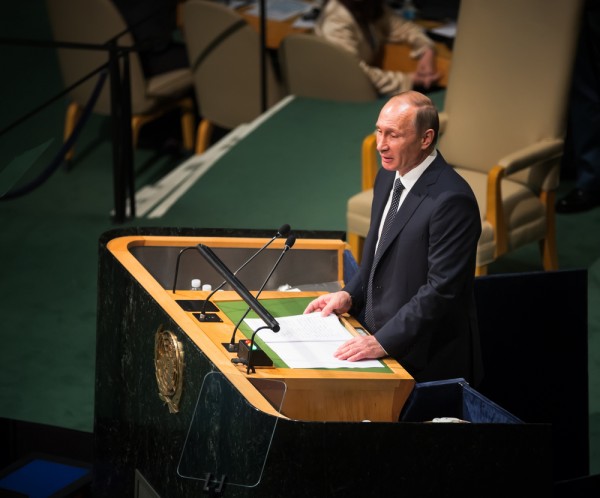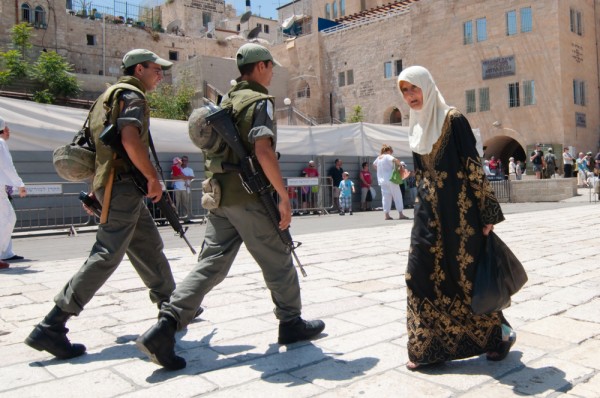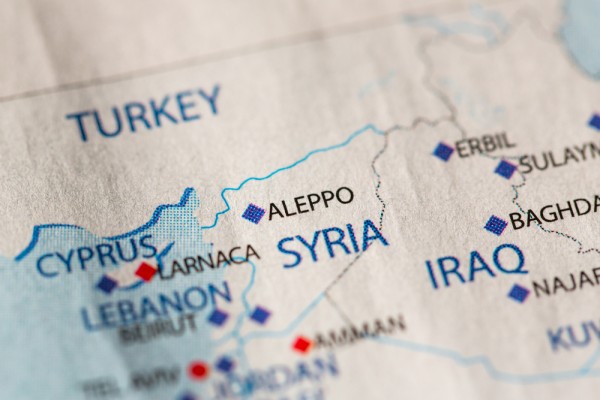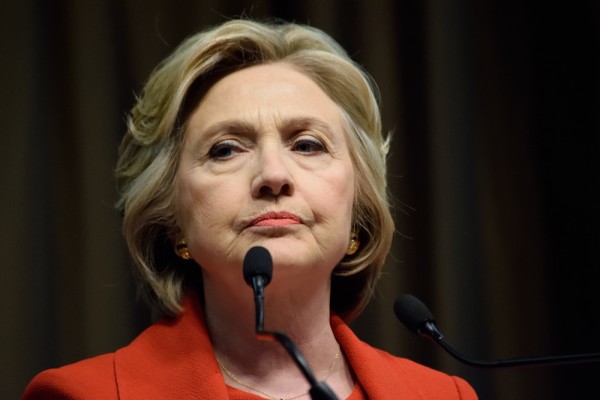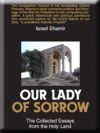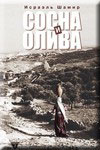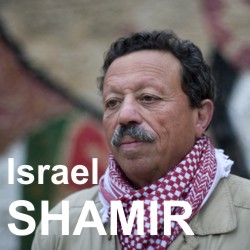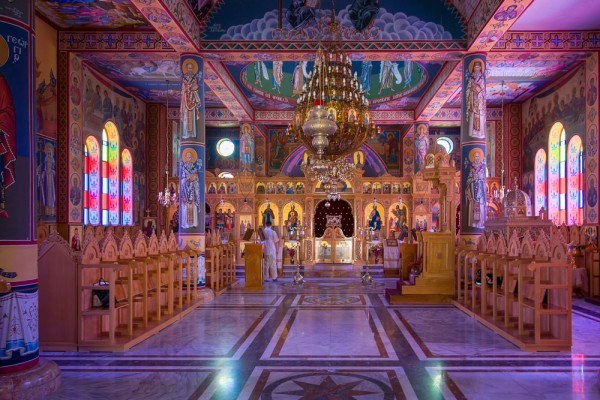
The Pope of Jerusalem (one of the five original popes, His Beatitude the Patriarch of the Holy Greek Orthodox Church of Jerusalem and Holy Land, by his usual title) Theophilos III hardly dares to visit churches nowadays. Whenever he is coming, his flock stands outside and prevents his entry. Last week, Jewish police helped him to enter a village church, while hundreds of believers stood by and cursed him loudly. There is a plan to stop him on Christmas from entering the Nativity Church.
Bear in mind that his predecessor Irineos I had been deposed by the bishops twelve years ago, and since then he lives in a lonely cell in the monastery, refusing to leave its walls. He knows that if he leaves he will not be allowed to return. Looking at his travail, the present Patriarch is far from complacent.
The laity and lower clergy, the Christian Palestinians in the Holy Land are very unhappy with the Patriarch and the whole setup of the Church management. The Patriarch sells church lands at fire-sale prices; the church-owned lands of Caesarea worth billions were sold by him for less than the price of one house on this immense tract of land. Soon the church will be destitute, and the Palestinian Christianity established by Christ Himself will wither, the clerics say.
But money is not the only issue. The Patriarch does not allow Palestinians to rise in the church: just one Palestinian, His Beatitude Theodosius Atallah Hanna the Archbishop of Sebaste had been ordained years ago, but even he has not been allowed to participate in church decisions, he is kept out of the Synod, the ruling church body, out of the Holy Sepulchre Brotherhood, he has no church of his own and no salary, the only Archbishop kept out in the cold. That is because he is not a Greek by blood.
In the Orthodox Church only monks can rise to the episcopate, while ordinary parish priests may (and usually do) marry. The Patriarch does not allow Palestinian monks who studied theology in Greece to come home to Holy Land, so they could not claim the bishop mantle in his church. There are 24 Palestinian monks now in monasteries of Greece; all of them applied to move back to their native land, all of them have been refused.
“If you want to move to Palestine, give up your monastic rites and marry. Otherwise, stay away!” – the Patriarch replied to them. All bishops in the Jerusalem Church are ethnic Greeks; and they are determined to keep this occupation forever.
While the Jews keep Palestinians out of political decisions (even left-wing Israelis would never allow Palestinian parties to join the government), the Greeks keep Palestinians, descendants of the Apostles, out of church control. Everybody knows of the Jewish occupation of Palestine, it is frequently discussed in the UN, presidents deal with it and activists fight it, but the Greek occupation of the Church of Jerusalem is not being mentioned in polite company.
Many good Greeks support the struggle against the Jewish occupation, and sail to break the Gaza blockade. While this is surely good, it would be better if they were to deal with the Greek occupation.
The Greek Church, that is the Orthodox Church of Greece, knows of this shameful story. Their bishops visit the Holy Land and meet with the Palestinian Christians. But they do not dare confront the hierarchy of the Jerusalem Church, and they – led by the present Patriarch – consider Palestine their own milch cow to be milked at will.
The results are dreadful. Palestine and Israel have no services for all their citizens, but each community takes care of its own. The Muslims take care of Muslims, Jews care of Jews, Catholics and Protestants care for their own flocks, build and staff schools, organize activities from olive oil sales to beer production. Only the Orthodox Christians of Palestine, the oldest and the greatest community, have nothing. Their numbers dwindle with every year. Oh yes, we can justifiably blame Jews for not doing enough, but it would be fair to attach a portion of guilt to the leaders of the Orthodox Church. They just do not care about the local flock at all. They are not shepherds of the flock.
They do not build churches. There are many new new Israeli cities, Beer Sheba, Afula, Eilat, even Tel Aviv with thousands of Orthodox Christians (baptized Jews or immigrants of Orthodox faith), but not a single church has ever been established in them. The Russians proposed to build the churches for the Jerusalem Church, but the Patriarch is just not interested. He cares only about the profitable old pilgrim churches visited by Greek and Russian tourists.
The leaders of the Church of Jerusalem, the Greek bishops who refuse to accept the Palestinians as their equals, practice ecclesiastical racism, or “ethno-phyletism”, as it is called. The Orthodox Church condemned this practice as heresy in its Synod of 1872 in Constantinople. However, the condemnation didn’t change the reality in Palestine.
The Holy Land is the only place on earth where the hierarchs of the church are invariably of Greek, and never of local stock. Everywhere else, the Orthodox churches are grounded in local tradition, use the vernacular tongue, and are ruled by local bishops. The Russian Orthodox Church has Russian laity and Russian bishops, the Church of Greece has Greek laity and Greek bishops, the Church of Antioch has Syrian Arab laity and bishops, and only the Church of Jerusalem has Palestinian laity and parish priests and Greek bishops.
The roots of this problem go back for hundreds of years, to 1534, when after the Ottoman conquest a Greek monk Germanos had been installed as the Patriarch of Jerusalem by the decision of the Sublime Porte, that is the Ottoman Empire. He appointed only Greek bishops, and since then the Greeks have kept the monopoly of power in the Church. They collaborated with the Turks, with the British and now with the Jews, as they had no independent power base of their own, but they could exist only by obliging the supreme foreign power in the land.
The Greeks, the Jews and the Armenians formed three elite groups in the Empire; they provided the bulk of educated classes, kept the trade (Jews), administration (Greeks) and crafts (Armenians) in their hands, while Turks were satisfied with being soldiers and peasants. The three nations have a similar modus operandi: tightly knit, tribal in their outlook, mutually competitive and exclusionary. If you want to understand the roots of Jewish domination in the US and elsewhere, you may look into the way these three groups managed things in Imperial Turkey. And there was not much to choose between the Jew and the Greek.
Ethnic Greeks had seized full control over the churches within the Empire, that is the churches of Constantinople, Antioch, Jerusalem and Alexandria. No ethnic Arab, Turk or Copt could become a bishop. The result was good for the Greeks but tragic for the Church: laity voted with their feet and left the church to convert to Islam or (to lesser extent) to non-Greek-controlled churches, among them, the Roman Catholic Church, Syriac Church and more exotic denominations. This Greek ecclesiastical racism killed, or at least undermined the native Middle East Christianity of Christ and His Apostles.
Eventually the Copts of Egypt broke with the Greek-dominated church of Alexandria and established their own Coptic Orthodox Church of Alexandria, leaving communion with other Orthodox churches, while the Greek Orthodox church of Alexandria withered and remained a shadow of itself.
An opposite development took place in Syria, where (at the end of the 19th century) the local Arabs frogmarched their Greek bishops to the harbour and had shipped them away to Greece. They elected Arab bishops and an Arab Patriarch, while remaining in communion with other Orthodox Churches. Their Church of Antioch flourished until the rise of ISIS, but hopefully it will regain its lost ground as their Orthodox brothers from Russia helped them defeat the jihadists.
The Constantinople and Jerusalem Sees remained in ethnic Greek hands, in both cases with very unhappy consequences. In Constantinople, the Greeks spurned Ataturk’s proposal to become the Turkish Orthodox Church, though it would have returned to them many churches including the great Hagia Sophia, and probably would have prevented the tragic Greek dispossession and expulsion in 1920s. The Church of Constantinople became a withered ghost dominated by the CIA, and so it remains until nowadays.
Jerusalem and the Holy Land were too important to the Christendom to let it go native. The Russians supported nativisation of the Church, but quite cautiously, as they cherished their unity in communion with other Orthodox churches. There was much Jewish meddling, too. Thus the Church of Jerusalem remained in ethnic Greek hands, and more and more Orthodox Palestinians converted away, to the Catholic or Protestant denominations. From being majority in 19th century and from being a full third of the entire Palestinian population in the days of the British Mandate, the Orthodox have nowadays shrunk to some 30,000 members of the church.
And now, the Greeks at the helm of the church have decided to turn their milch cow into a meat-producing one and slaughter it, by selling its assets to Jews.
The recent and much-in-news development is the story of two hotels at Jaffa Gate in Jerusalem, once the best New Imperial Hotel and Petra. Both are run-down and sorry shadows of themselves, but still occupy the best positions in Jerusalem. They were sold by the previous Patriarch Irineos for peanuts; Haaretz revealed the buyers had paid twenty times less than the assessed sum. And who are the buyers? An extremist Jewish settler organisation Ateret Cohanim, whose purpose is to rebuild the Third Jewish Temple on the ruins of Al Aqsa Mosque and meanwhile try to cleanse Jerusalem of non-Jews and settle Jews in their homes.
The current Patriarch Theophilos III solemnly promised to revert the sale. Indeed he went to Jerusalem District (Jewish) court demanding to void the deal for it was done fraudulently for too low a price and by bribing officials. The Court ruled: the deal stays. I, for one, was outraged by this obvious Jewish injustice, but it turned out the villains weren’t Jews.
I have met with a Palestinian Christian, a leading member of the Central Orthodox Council in Israel, Mr Alif Sabbagh of Al Buqaia (or Pekiin) village in Galilee, the man who dedicated his life to documentation about the church lands and about the Patriarchate dealings. He owns a veritable full archive of all the deals of recent years. He told me the court had no choice: the Patriarch Theophilos refused to provide proof for his claims, and he secretly entered into an agreement with the Jewish settlers.
In Israeli law, there are two stages of appeal. In the first stage, the claimant makes a claim, in the second stage, he brings proof of his claim. The Patriarch made a claim, but refused to furnish the proof. The Jewish judge said she can’t accept the claim without the proof.
And it is not that the Patriarch could not do it. The man in the heart of the problem, Nikolas Papadimas, the former church treasurer, who allegedly signed the sale contracts without Irineos’ knowledge, had fled the country and been wanted by Interpol on an international warrant amid allegations that he stole millions of dollars from the Patriarchate, came back to Athens and demanded to give his evidence at the court. His evidence would trash the Jewish claim, and it is clear why the Jewish settlers objected to his evidence being introduced at court. But the Greek Patriarch Theophilos also objected to placing Papadimas on the witness stand, and the Jewish judge really could not do anything, even if she were willing.
At the same time, the Patriarch sold the church lands in Western Jerusalem, huge and valuable tracts of land including the plot on which the Knesset is built to mysterious offshore companies for pennies. (The real money came into his account in his own real name in an offshore bank, says Alif Sabbagh.) In response, the Jewish parliament, the Knesset, began to discuss the Rachel Azaria bill of expropriation of church lands sold to third parties since 2010.
The Patriarch Theophilos called upon Christian solidarity, and the churches of the West responded by speaking against the bill. However their stand was based on mis-representation by the Patriarch, who claimed the bill expropriates church lands. I have read the bill, and it just is not true: the bill makes sales of church lands to third parties practically impossible. After the bill becomes law, the Patriarch will have a choice: to sell the lands to the Jewish state, or not sell at all. This obviously undermines his bargaining position and his ability to pocket more bribes, but does not really damage the position of the Church.
The Palestinian Christians are a well developed and prosperous community. They are better educated than the Jews, they are well-to-do, rooted in the soil of Palestine. They were and are active in the struggle for Palestine, often leading it despite their small numbers. (The name of George Habash, the Christian leader of Popular Front, comes to mind, as well as the name of Emile Habibi, the great Palestinian writer). They have good relations with the Palestinian Muslims, and they would like to get along with Jews, too. You can read a short and rather good entry in Wikipedia about them, balancing its usual bias by reading the discussion. Though you will notice the ubiquitous presence of known Zionist operators (Jayjig etc), still it conveys the message and allows one to understand the subject, which is a rare thing in Palestine-related Wikipedia articles.
Their spiritual leader is the hard-working and relatively young Archbishop Theodosius Atallah Hanna, who by uncanny coincidence bears the name (Atallah) of the last Palestinian Patriarch before the Greek takeover. He is very active, meeting delegations daily and usually posting the report on his Facebook page or on his other page, where his message is “Palestinian Christians are not a minority in Palestine; in Palestine, there are no minorities , but there are people struggling for freedom”.
He is popular with Muslims, too. During the recent confrontation over the Al Aqsa Mosque he went there in solidarity with the Jerusalem Mufti, his personal friend. He is a good friend of the Orthodox Jews of Naturei Karta, who I witnessed personally accompanying him on a visit of condolence. He is willing to be a good friend to Jews, too, for he recognises they are here to stay in his beloved Palestine. And he naturally bears no animosity to Greeks, as he studied in Greece, speaks Greek fluently, visits Greece frequently and recognises the importance of Greek culture for Palestinian Christians.
He would be a perfect new Patriarch, ending the discord and bringing unity and peace to the oldest Christian Church created by Christ himself. The quarrels over lands would go away, Greeks would peacefully mesh with the Palestinians, losing their monopoly but preserving their important position. In short, he would be the ideal de-colonising figure, allowing not only native Palestinians, but other Orthodox Christians of the Holy Land, notably baptised Russian ex-Jews and ethnic Russians to fully integrate in the church, a prospect that horrifies the present Patriarch Theophilos.
He is also well known in the Middle East. Recently he visited Syria, went to its Orthodox Monasteries and churches, and met with President Bashar al Assad whom he admires for his defence of the Christians in face of the Jihadi onslaught. (Israeli police and Israeli media attacked him for this visit to “the enemy”, though he merely fulfilled his ecclesiastical duty). He is liked by the Russians and by baptised Russian Jews in Israel, and he often baptises them and their children. He baptised me and my wife and son, for which I am eternally grateful to His Beatitude.
However, the Palestinian Christian activists who now lead their Intifada against the present Patriarch, think that the best solution for the much-suffered church is to have a few years without a Patriarch at all. They told me they would prefer the church to be run by a committee of three bishops (including Archbishop Theodosius Atallah Hanna) for a while, and at that time the church should establish new rules of Patriarch succession, forever forfeiting the Ottoman-inherited rule of asking consent of the sovereign (presently of the Israeli government, of the PNA and of the King of Jordan). This consent-seeking opened the church to blackmail – the Israeli government refuses to give its consent until the candidate promises to give some Church lands to the Jews. The rebels have an even farther-reaching idea of taking economic decisions (be it lands or salaries) out of the Patriarch’s hands for good. Let the Patriarch deal with spiritual questions, while the laity manage the material problems, they say.
The Patriarch is not waiting quietly for these developments. He is using all the resources of the church to bribe those who bear influence: the PNA, the Jordanian princes and Israeli officials. The Palestinians speak of a big land lease the Patriarch granted to Prince Ghazi bin Muhammad of Jordan, thus turning Jordanian royalty to his side. The Israelis had received even more generous gifts, and the PNA officials weren’t forgotten either.
The Russians could influence the outcome, but they are quite unwilling to interfere in the affairs of the sister church. In private conversations, they express their sympathy for the Palestinian cause, but they do not want to endanger their relations with the Patriarchates of Jerusalem and Constantinople. These can painfully retaliate by accepting the demands of the Ukrainian bishops for recognition, and in general cause more trouble than it is worth, for the Russians.
For this reason it is hard to predict how the struggle will end, whether the wily Patriarch will keep his position and the Greek dominance in the church by granting more and more lands to the people in power, or whether this Palestinian Intifada succeed after all and the church will become independent of the Greek colonisers. Probably the best force able to interfere and solve the dispute peacefully is Greece, namely the Greek people, who are able to understand the problem and do what they preach to other colonial powers, namely to end the colonisation and occupation. Otherwise the fate of the oldest Christian Church is in doubt.
Israel Shamir can be reached at adam@israelshamir.net
This article was first published at The Unz Review.




